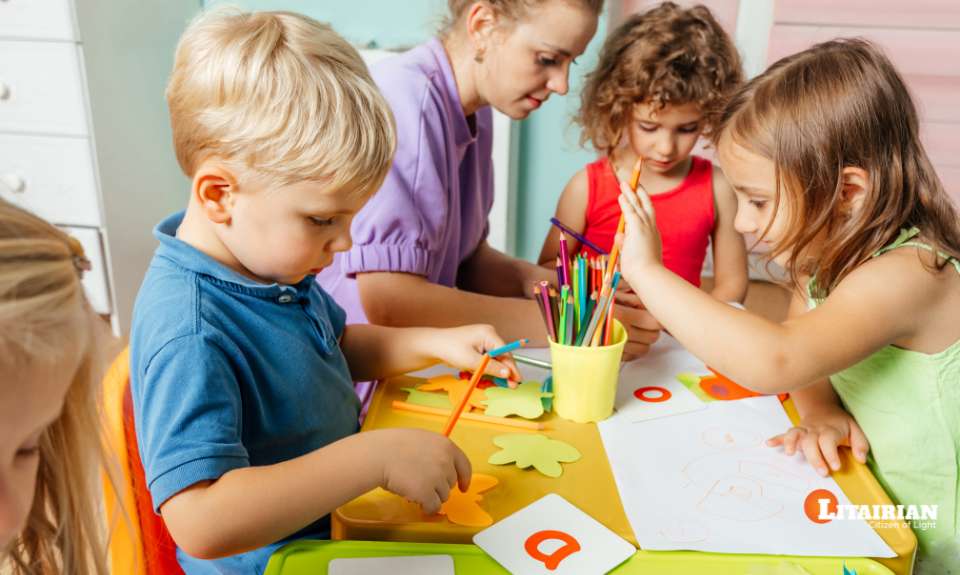
Involving children in decision-making processes empowers them to develop critical thinking skills, gain confidence, and take ownership of their choices. By actively engaging them in discussions about family matters, school decisions, and personal choices, parents and educators can nurture their independence and prepare them for success in life. Explore with us, the importance of involving them in decision-making and provide practical tips for parents and educators to facilitate meaningful participation.
Understanding Children’s Rights
Children have the right to participate in decisions that affect their lives, as outlined in the United Nations Convention on the Rights of the Child (UNCRC). According to the UNCRC, they have the right to express their views freely, have their opinions considered in matters that concern them, and participate in decision-making processes that affect their well-being. By respecting children’s rights and involving them in decision-making, adults can foster a sense of agency, autonomy, and self-esteem in them.
Importance Of Involving Children In Decision-Making
- Promotes Self-Esteem: Involving children in decision-making validates their opinions, perspectives, and experiences, boosting their self-esteem and confidence. When children feel heard and valued, they develop a positive sense of self-worth and belief in their abilities.
- Fosters Responsibility: Participating in decision-making processes helps children understand the consequences of their choices and take responsibility for their actions. Let children be in discussions about family rules, household chores, and personal responsibilities. Parents and educators can instill a sense of accountability and ownership in children.
- Develop Critical Thinking Skills: Allow children in decision-making. Encourage them to think critically, analyze situations, and weigh different options before making choices. By engaging children in discussions about complex issues and problem-solving activities, parents and educators can stimulate their cognitive development and enhance their decision-making skills.
- Enhances Communication Skills: Participating in decision-making processes provides them with opportunities to express their thoughts, feelings, and opinions effectively. By engaging children in conversations about their preferences, interests, and concerns, parents and educators can improve their communication skills. This will strengthen their ability to articulate their ideas.
- Builds Trust and Respect: Involving them in decision-making builds trust and mutual respect between adults and children. By listening to their perspectives, and taking their opinions seriously, parents can show respect. By involving them in discussions about family matters, parents and educators demonstrate their respect for children’s autonomy and agency.
- Prepares for Adulthood: Involving children in decision-making prepares them for adulthood by equipping them with essential life skills such as problem-solving, negotiation, and compromise. By empowering them to make choices and navigate challenges, parents and educators help them develop the resilience and adaptability needed to thrive in the future.
Practical Tips For Involving Children In Decision-Making
- Start Early: Begin involving children in decision-making from a young age to instill a sense of responsibility. Encourage children to express their opinions and preferences in everyday situations, such as choosing their clothes, toys, or activities.
- Create a Safe Environment: Create a safe and supportive environment where children feel comfortable expressing their thoughts and feelings without fear of judgment or criticism. Encourage open communication, active listening, and respect for diverse perspectives.
- Offer Choices: Provide children with opportunities. Let them make choices and decisions in various aspects of their lives. Allow them meal planning, family outings, or extracurricular activities. Offer a range of options and allow children to select the ones that best reflect their interests and preferences.
Respect And Encouragement
- Encourage Discussion: Engage children in discussions about family rules, routines, and decisions that affect them. Encourage them to share their ideas. Let them ask questions, express their concerns, and involve them in brainstorming solutions and making compromises.
- Respect Their Input: Respect children’s opinions, even if they differ from your own or seem trivial. Avoid dismissing or belittling children’s ideas and instead acknowledge their contributions and show appreciation for their input. Don’t make fun of their opinions, it will hinder their progress.
- Model Positive Behavior: Lead by example and demonstrate respectful communication, collaboration, and problem-solving skills in your interactions with children. Show them how to handle disagreements, negotiate compromises, and make decisions democratically.
- Celebrate Achievements: Celebrate children’s contributions to decision-making processes and acknowledge their efforts and achievements. Praise their initiative, creativity, and problem-solving skills, and recognize their growth and development over time.
Involving children in decision-making is essential for promoting their development, fostering their independence, and preparing them for adulthood. By respecting children’s rights, valuing their opinions, and providing opportunities for meaningful participation, parents and educators can empower them to become confident, responsible, and engaged members of society. By nurturing their autonomy, agency, and critical thinking skills, adults can help them navigate life’s challenges, make informed choices, and contribute positively to their families, communities, and the world. Together, let us empower young minds and create a brighter future for generations to come.
About The Author: Payal Jain
About The Author: Payal Jain
She is a compassionate life coach, counselor, and certified VK teacher, with extensive expertise in cosmic healing techniques and energy work.
Well-versed in the use of Affirmations, Switchwords, Bach Flower Remedies, and Cosmic Serums of Vibbes Kada, she helps individuals align with their highest potential. As a faithful, true, and wholehearted follower of Sharat Sir, she has been profoundly shaped by his guidance and teachings, which have empowered her to master these transformative healing modalities. Sharat Sir regards her not only as a devoted student but also as a cherished member of his family.
As a senior member of the Litairian core committee, she continues to serve with dedication, always striving to share the wisdom imparted by Sharat Sir. In her roles as a Cosmic (VK) Healer, Law of Attraction teacher, and Reiki Master/Healer, she empowers individuals on their journeys of self-discovery and fulfillment. A recipient of the prestigious WOW Personality Award in Mumbai (2016), she is also an accomplished blogger, sharing insights and positivity inspired by Sharat Sir’s teachings.
